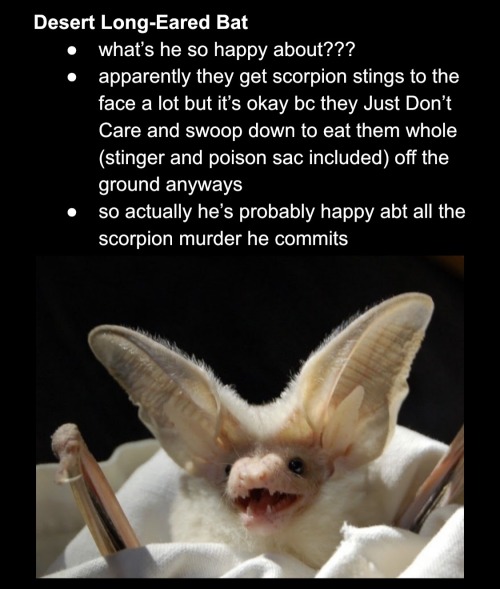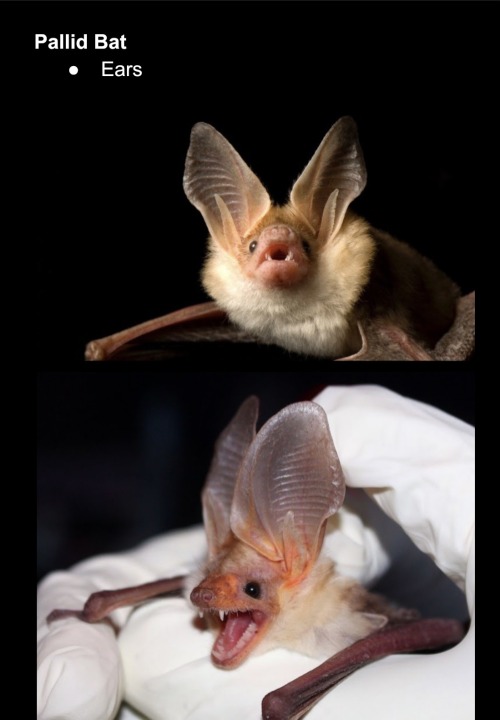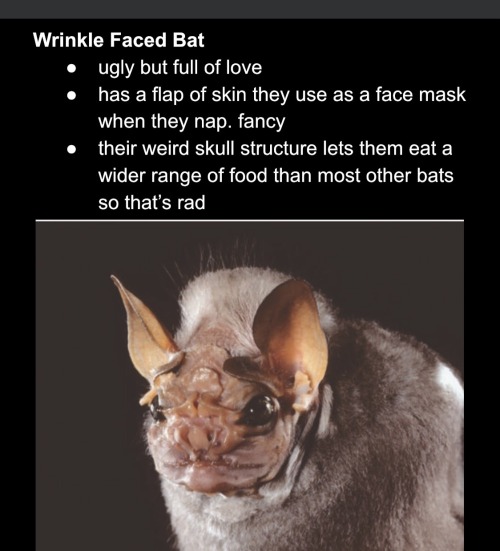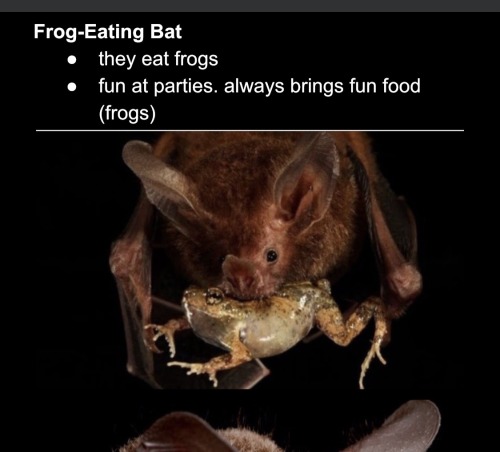Riffing Off Of Your Recent Post About Jordan Peterson, What IS The Difference Between Counselling Psychology
Riffing off of your recent post about Jordan Peterson, what IS the difference between counselling psychology and clinical psychology? I know it’s possible to get a PhD in either, but I’m fuzzy about the differences in approach.
My current therapist is a psychiatrist who is working with me on meds and also with Cognitive Behavioural Therapy (CBT) talk therapy. I’m perfectly happy with him, but if he ever got hit by a bus or something (or simply retired at some point), I’d be in the market for a new therapist. So I ought to know the difference between clinical psychologists and counselling psychologists.
Thank you.
In practical terms, on the client end, there's very little difference. The real divisions you need to know are:
Psychiatrist: Someone who went to medical school and specialized in psychiatry; can diagnose and prescribe medication. Usually designated MD.
Psychologist/Therapist/Counsellor: Someone who has gone to graduate school and focused on psychology or clinical social work; can sometimes diagnose, but usually cannot prescribe medication.
Psychiatrists do sometimes do talk therapy! I had a psychiatrist like that once. He was great. Sadly, this is mostly going out of fashion. Because they have so much extra training, they get higher salaries; administrators who care about increasing efficiency and cutting costs will therefore change them from seeing a patient for an hour each, to seeing a patient for only 15 minutes to talk about medication, and shunt the clients to cheaper therapists for talk therapy.
Within the field of psychologists/therapists /counselors, there are approximately eleventy squillion different variations in education format, theoretical basis, research background, and bragging rights. That's where the Counselling vs Clinical division lives. However, all the fields have similar aims (helping people reduce distress and become more healthy) and similar approaches (sit in a room and talk) and they freely poach any techniques or knowledge from each other that seem useful, so there's very little intrinsic difference that you would see.
The one big difference you would see is if you needed a formal diagnosis, more than just the person who treats you going, "Yeah, looks like [fill in the blank]". This is usually only needed if you're applying to something specific, like government benefits or special education accommodations. Assessment psychologists/neuropsychologists mostly tend to focus only on assessment, which is a whole different field in itself. Because of their expertise, and that someone who provides psychotherapy with you might be somewhat biased with their own ideas of what your deal is, formal assessments are generally done by someone who is not your therapist.
Anyway. The big difference between counselling and clinical psychology is basically historical. Clinical psychologists historically descend from the workers in hospitals, asylums, and mental health clinics, who focused on people with acute mental illnesses. They worked closely with psychiatrists and emulated psychiatry's popular methods at the time (mostly Freudian psychoanalysis) and focused specifically on treating mental health as a disease. This has generally been seen as a relatively more factual and sciencey field, since it's where a lot of the research on abnormal psychology and how to treat it has happened.
Counselling psychology, meanwhile, descends historically from pastors and school counsellors—people in churches or schools with "normal populations" who were the obvious go-to people for those in emotional distress or uncertainty about their lives. Counselling focused on training people who needed the skills to help somebody grieving the loss of a loved one, or who needed to figure out what they wanted to do with their lives. It has generally thus been seen as a fuzzier, less rigorous field, and less prestigious. It's also closely entangled with Social Work, which grew out of many of the same settings and focused on helping ease the lives of people affected by society's many ills.
But they were all of them decieved, for another Ring was made—
Counselling as a field got significantly transformed by Carl Rogers, who used scientific research to see what kinds of therapy approaches helped people—and to the shock and horror of many many people, the warm and gentle approaches used in Counselling and Social Work turned out to work better than Freudian impassivity—even in Clinical populations!
Because see, the division between these fields was based on a misapprehension. A hundred years ago, or even fifty, we thought that these fields focused on significantly different groups, and it turns out that's not really true. Freudian psychotherapy in its failure state was all about impersonal disconnection, pointing out the flaws and foibles of somebody's psyche and expecting them to fix it. Using Rogers' method of treating mentally ill people like human beings, looking them face-to-face and believing in their ability to better themselves as people, actually worked! Amazing!
And also, a lot of people with mental illnesses are really good at masking, compensating, and functioning as normal enough to avoid general detection and referral to medical treatment. Anyone dealing with the "general population" is inevitably going to deal with people with profound levels of depression, anxiety, psychosis, addiction, and every other mental disorder under the sun.
Therefore, anybody practicing in either field had to learn about both, because each required the skills the other had. These days, the difference is generally more about who your grad school was founded by fifty or a hundred years ago than your training recently. Counsellors get hired by mental hospitals, and clinical psychologists work in schools.
The differences still linger in little ways, like how in the Canadian Psychological Association, there are different "sections" that each organize their own newsletters and social media groups and parties during conferences. They discuss new research and issues relating to their areas of practice. Most people belong to three or four each, since they overlap—there's Counseling and Clinical, sure, but also Black Psychology, History and Philosophy, Psychology in the Military, and so on.
So I am mostly being petty and flippant when I say I'm glad not to be on the Clinical listserv, where there is, I imagine, a "Jordan Petetson is Making us Look Bad" Quarantine Thread, which will be locked after 9000 replies with no resolution in sight.
Anyway, that's all inside baseball and not useful to you. Onto the useful stuff.
Full disclosure: What I'm about to say may be unconsciously biased by my perspective, despite my efforts not to be so, because my Master's degree in Counseling means I have significantly less professional prestige than psychologists with doctorates, especially in Clinical Psychology. However, I earnestly believe that I am paying attention to the science and speaking the truth here.
All the best evidence states that what level of education someone has, what school they learned it in, and what therapeutic technique they are applying are not good predictors for whether therapy with them will help you.
And yet, therapy undeniably does work. It's just that, for all our trying, we still struggle to put our fingers on precisely what the difference is.
You are actually in the best position to predict success, because the best metric we can find is whether you, personally, feel that your counsellor is listening to you, understands and cares about you, and is helping you reach your goals. That's literally the most important thing. Does this counsellor seem like someone you could work with?
This means it's actively useful to provide feedback as you go, like, "I don't like that idea, what if I did it this way instead?" or "No, I think you're mistaken," or "I'm uncomfortable with this." Part of counselling is absolutely about sitting with discomfort and figuring out how to handle tough stuff, but your therapist should be someone you can at least discuss the whys and wherefores of the process with. They're a navigator on a journey with you, not a commander telling you where to march.
More Posts from Lyliana1277 and Others
The beginner autistic guide to common terms in our community (with extra context!).
*Disclaimer, I’m not a professional. This is just knowledge from my experience as an autistic person. Please feel free to correct anything :)
These definitions will include some of my own opinions and thoughts, especially on the more controversial terms. This is simply to help better prepare new autistic community members for conversations they become engaged in. Having all the perspective and context you can have can be very helpful when moving into new social spaces.
Autism (Or Autistic Spectrum Disorder, ASD): A neurodevelopmental disorder that is present from very early childhood. It’s mostly recognised through difficulties with social interaction and restricted and/or repetitive behaviours. The way it is referred to as “Autism Spectrum Disorder” is specifically referring to the fact that autism presents in countless ways. There are common traits and patterns, but the severity and complexity of those traits and symptoms is infinite.
NOTE: This does not mean that ‘everyone is a little bit autistic’. You are either autistic or you are not. It just means that if you have autism, it may present very differently to other autistic people you know.
Asperger’s Syndrome: Asperger’s syndrome is usually considered an older term for a ‘subtype’ of autism. The term is considered outdated by the DSM-5 and no longer used in that document. However it is still used in a lot of other countries. Now it is becoming more socially known that ‘Asperger’s syndrome’ is just a specific presentation of autism. Many autistics don’t like the use of the word ‘Asperger’s’ because of a couple reasons:
The term has a long history with NAZI’s and eugenics.
The term seems to basically mean ‘high functioning’ autistic, which simplifies the condition.
Asperger’s Syndrome is defined in a very similar way to autism, however people with “Asperger’s’ may be described as ‘gifted’ or ‘intellectual’.
It’s important to note that many people still identify themselves with the term ‘Asperger’s’. While it is good to be educated and up to date with terminology, some people have identified with this term their whole life and it’s not wrong to use the term for one-self. But either way, I do encourage you to do more research if you are comfortable.
Neurotype: Can be basically defined as the type of brain function one has. Some people consider autism a neurotype, and then neurotypical as another neurotype. However, many people claim that autism is ‘just another neurotype’. This is a harmful way of thinking about autism because autism is a disability. Labelling it as a ‘neurotype’ belittles all the struggles autistic people have that make them disabled. Autism is a spectrum and so some autistic people may not really consider themselves disabled, but many do.
Neurotypical (NT): A non-autistic person with no other mental conditions.
Allistic: A non-autistic person who can still have other mental conditions, such as depression or ADHD.
Neurodivergent (ND): Traditionally ‘Neurodivergent’ has been used to mean either autistic or ADHD. However in some contexts it is used to mean someone with any mental condition, including personality disorders or mental illnesses such as depression and anxiety.
Neurodiversity: a term used to describe the fact that there are many neurotypes in the world. It is used to imply that differences in brain development and function should be accepted as relatively normal. I think this is a good sentiment, but that some neurotypes should still be considered disabilities as well as a neurotype, so as not to diminish the struggles specific neurotypes go through.
High functioning/Low functioning: The labels of functioning are terms used to describe how independent an autistic (or other kind of disabled) person is able to be. Many autistics do NOT like the use of these terms for a couple reasons:
It tends to focus on the way an autistics disability affects the allistic people around them.
It simplifies the experience of the individual with autism to how independent they are, and is also not very descriptive for anyone trying to help the said autistic person.
High needs/Low needs: These are labels used to describe how much assistance an autistic (or other kind of disabled) person may need. It is slightly preferred by autistic people as the language is more centred to what the autistic person needs, rather than how independent they can be.
NOTE, many autistic people would argue that these terms are basically the same as high functioning and low functioning. I personally consider it to be best to just state someones highest needs or difficulties. For example “Olivia is nonverbal and highly sensitive to light and noise.”.
Masking: Masking is the act of hiding ones autistic traits to appear to be neurotypical. Masking is often a survival strategy developed by autistics to evade bullying or isolation. Masking can include suppressing the urge to stim, forcing oneself to make eye contact, learning how to ‘properly’ execute facial expressions, studying body language, etc. Masking can be an extremely vital skill for autistic people, but when an autistic person has to mask for long periods of time it can lead to negative consequences such as burn out or meltdowns. Masking can also be used in the context of other disabilities, such as ADHD.
Scripting: Scripting is a form of masking, when an autistic person pre-plans or practices responses or entire conversations. You may have a script you unconsciously follow for questions like “how are you?” Or “how is work?”, etc. It may be inspired from TV shows, movies or observing other people interact.
Burn out: Burn out is when an autistic person reaches their limit and has decreased energy for an extended period of time. Burn out may last anywhere between a couple days or a few years. Burn out is often caused by excessive masking, but can also be caused by repeated rejection, bullying or other mental conditions. Burn out is not the same as depression, but it can co-exist with depression.
Meltdown: A meltdown is when an autistic person experiences what might look like a ‘tantrum’. The person may be very angry, yelling, punching or hitting things (or themselves). They may be aggressively stimming or humming to themselves. A meltdown, internally, feels as if you are completely filled with negative energy, as if you might burst. It can feel like extreme irritation, or anger, or shame. Meltdowns can be caused by any number of stressful situations. For an autistic person this can be having a lot of social events, their routine being disrupted, having to eat foods they don’t like, being overstimulated, or even just negative social interactions.
Shutdown: A shutdown is very similar to a meltdown, in how it can be caused. For me personally, I tend to have a shutdown if I am not in a safe place to have a meltdown. From the outside it looks very similar to dissociation, and it can co-exist with dissociation. It typically feels like you are shutting down, turning off. You emotions were about to burst and then you just went numb. You may be unable to move, or go non-verbal. You may be crying quietly or you may simply just very suddenly feel the need to go home.
NOTE: Meltdowns and shutdowns can appear to feel like a panic attack, but they are different. Panic attacks come from intense feelings of dread or doom. Meltdowns and shutdowns come from repeated, or intense, stressful situations for an autistic.
Hypersensitive: Hypersensitivity is when the brain processes sensory input (such as touch, taste and smell) as much more intense than a neurotypical person would. This can mean that a slight cold breeze may feel painfully cold. Or looking outside a window can hurt ones eyes because it feels too bright. Or having to wear specific textures to stay calm.
Hyposensitive: Hyposensitivity is the opposite of hypersensitivity. It is when your brain inteprets sensory input as much less intense than a neurotypical would. Ways this can present in an autistic person include not realising when they hurt themselves, having a high pain tolerance, being unaware of temperature changes, etc. You may also not recognise your bodies hunger cues, dehydration or need for sleep.
NOTE: An autistic person can experience both hypersensitivity and hyposensitivity. It can also fluctuate day-to-day.
Sensory Processing Disorder (SPD): SPD is basically the term for experiencing lots of variation in your sensory input. It is similar to Auditory processing disorder. Which is where your hearing is technically fine (you aren’t any form of deaf), but you have trouble distinguishing what specific sounds are, or listening to one, important sound, in an area with lots of different noises (for example, being unable to understand what someone is saying next to you, because the TV is on.)
Overstimulation: This is when an autistic person has been experiencing too many different sensations at once, or for an extended period of time. This may be caused by too many noises happening at once. Or even just one annoying sound repeating for a long time. It can also be triggered by touch, taste, sight and smell.
Executive function/dysfunction: Executive function is the term used to describe how the brain initiates tasks. For neurodivergent folk, our executive function is often dysfunctional. This means we can often find it difficult to start new tasks. A way you may experience it is when you are sitting down, you may be screaming internally that you need to go and get some food, but your body seems unwilling to co-operate. Having executive dysfunction does not mean you are lazy, or do not want to do the task, it means you may be unable to do the task.
Autistic intertia: Autistic inertia is related to executive dysfunction, because it is a term that helps describe how autistic people struggle to switch or initiate tasks. “ An autistic at rest remains at rest, and an autistic in motion remains in motion”.
Special interest/Hyperfixation: A special interest is a extremely long term interest/obsession with a particular topic. An example might be being really into pokemon. Learning all the different types of pokemon, playing all the games and collecting heaps of merch. A hyperfixation is a more short-lived interest that can be destructive in it’s severity (for example, it might get so extreme that it’s the only thing you can think about, to the point where you neglect your needs). Special interests are less likely to be destructive. But hyperfixations can be healthy and normal too.
Stimming: Stimming or self stimulation is the act of doing repetitive movements to help self regulate. Stimming can look like spinning, chewing, flapping hands, dancing, foot tapping, pen clicking, touch soft fabrics, using weighted blankets, lighting candles, eating crunchy snacks, etc. All of these forms of movement or repetitive sensory input can help us regulate our emotions better, prevent a meltdown or shutdown, or focus on a task easier.
NOTE: Echolalia is another term you may hear. It is a form of stimming in which an autistic person repeats sounds/phrases over and over.
ADHD: Attention-deficit/hyperactivity disorder is a neurodevelopmental disorder like autism, but it affects the brain in different ways. It often presents as having difficulties with paying attention, regulating emotions and hyperactivity (or, alternatively, it can present as being inattentive).
Savant or Savant syndrome: A condition when someone with some type of significant mental disability is an expert/’savant’ in a particular field, to the point of surpassing neurotypical experts. An example might be having photographic memory, or being able to learn languages extremely easily, or being an extraordinary mathematician. Autistic people often don’t like to hear the term ‘savant’ as we are often only valued by ‘society’ if we are savants. And if we are not, then we are often treated as lesser. This is kind of a form of eugenics.
Eugenics: Eugenics is a philosophy or belief that we can selectively breed humans to ‘improve’ humanity. Or create the ‘perfect race’. This was an idealogy practiced by Adolf Hitler during WWII, which lead to the holocaust. Eugenics is often a subtly underlying philosophy behind many statements that, on face value, seem relatively harmless. For example - “autism is the next step in evolution” is currently a popular statement. However, this implies that every other neurotype is not an improvement, which therefore implies that being autistic is superior. This would be considered a form of eugenics. Eugenics is considered a horrible philosophy because it encourages people to look down on others and dehumanise anyone not like themselves.
Co-morbidity: A co-morbidity is the term used for a condition that is regularly seen in conjunction with another condition. For example, autism and ADHD are often seen together. However, it can also be used to simply describe someone who has more than one condition (physical or mental).
AuDHDer: Someone with autism and ADHD. Just a shortened way to refer to people with both disabilities.
Selective mutism/Situational mutism: When an autistic person (or other neurotype) experiences periods of being unable to speak or communicate. This can often occur in stressful situations, like before tests or during doctors appointments. It is officially referred to as ‘selective mutism’ but many are trying to change it to ‘situational mutism’ as the individual does not willingly choose when they go non-verbal.
Alexithymia: Alexithymia is typically described as the inability to define and/or describe ones emotions. So you may often feel a type of discomfort, but not be able to label what it is. Not being able to distinguish between anger and irritability. Or not knowing if you feel sad or confused. It can make seeking professional help for many conditions really difficult, as you are unable to put your experience into words. It can also be similar to hyposensitivity in the way that it makes it difficult to understand what you body is feeling.
Dyspraxia: Dyspraxia is a disorder that affects co-ordination, movement and balance. It can make things such as sports, driving, cooking and writing difficult. It is fairly common in autistic people.
Prosopagnosia: The inability to recognise/remember faces. It is more common in autistic people.
Synesthesia: Synesthesia is when one form of sensory input is sometimes also experienced as another. For example, someone with this condition may see colours when they hear someones name. They may hear a song and get a taste in their mouth. This is also more common in autistic people.
FINAL NOTE: Autism is a spectrum and you may not experience all of these different terms, or you may not experience them in the way I described them. That does not mean you aren’t autistic. This is not a diagnostic tool. This is simply a guide to learning the terms you may often hear when discussing autism.
source






found an old google doc i made of my favorite bat species. you should suggest more species for my list pls
Everything by Richard Bach, but especially Jonathan Livingston Seagull and Illusions.
what's a book you read as a teenager that was so magical and personally profound to you it literally changed your life, doesnt matter if the book was actually well written or not. mine's probably the catcher in the rye
Giving up facial expressions has been amazing.
Ok so im learning some stuff about unmasking as I attempt to do it for the first time ... so I figured I'd share in case it helps anyone :)
My ND traits are a natural part of me, but because they aren't habitual yet, unmasking is a conscious, deliberate choice. Simply having ~knowledge~ about my brain will not help me as much as it could if I acted on it
Many aspects of unmasking (especially stimming) feel super forced and awkward sometimes, but that doesn't mean I'm faking! It just means I'm out of practice
I've spent my whole life ignoring or denying my own needs, so the little voice in my brain is very difficult to hear. I miss some cues sometimes
My brain is very much like a little toddler tugging on my sleeve. It constantly approaches me with something to say. Treating the voice with compassion allows me to make a choice that I might otherwise deny my conscious self
When I actually started listening to my brain, I realized that I don't like what it's saying. "It's too bright. It's too loud. You don't want to make facial expressions anymore. You're bored. You're burning out." It makes me feel vulnerable. DO NOT IGNORE THE BRAIN, SUNNY. It is saying something for a reason!!!
Take breaks. Take breaks take breaks take breaks. If I have the option to rest but I'm thinking of powering through ... don't. An ounce of prevention is worth a pound of cure
Most people genuinely do not care if I stim. They just vibe with it. Some of my friends and my fiancé even think its cute that my joy is so visible, which makes me feel a lot better about it :)
When I actually do stuff that's good for my brain (creating routines, wearing sensory friendly clothes, scheduling alone time) I reap the benefits! Who'd have thunk it
Sleep is like 90% of the battle
Sometimes I get upset, emotional, and scared about unmasking. I'm ultra-conscious of myself. I wonder how I look to other people. BUT! I am learning learn to defend myself from my own ableism in those little quiet moments where I play with a tangle on the bus or slip away to a quiet space
I am happier. It is coming more naturally. I never want to go back :)
My wife is a huge fan of AO3, she’s been there almost since the beginning. We’ve been talking a lot about this.
"but AO3 hosts content that contains abuse!" please never go to a local library ever.
First anime I ever watched an episode: Sailor Moon
First anime I attempted to get into the series but couldn’t fully: My Hero Academia
First anime I devoured from start to finish and need more of: Saga of Tanya the Evil
I feel like Food Wars also needs a mention here, but it’s a very casual watch for me.
That post about death note being "everyone's first anime" (untrue statement) made me curious and now I want to gather data for science
Can you reblog this and tell me where are you from and what was your starter anime?
It almost seems like non-disabled people have a harder time accepting when a chronically disabled person will never get better - and maybe even deteriorate over time, than the affected person has.
"Aww don't lose hope"
There is no hope to be had? Stop pushing your toxic positivity down my throat when I have come to terms with my situation and am grieving already.
Losing hope is what has given me an ounce of peace of mind. This is what life is now. It's not your grief, it's mine.
-
 wordsarereallyhard liked this · 1 year ago
wordsarereallyhard liked this · 1 year ago -
 thecourtfool liked this · 1 year ago
thecourtfool liked this · 1 year ago -
 zephiralilac liked this · 1 year ago
zephiralilac liked this · 1 year ago -
 confusedexplosions liked this · 1 year ago
confusedexplosions liked this · 1 year ago -
 andrealikesbooks liked this · 1 year ago
andrealikesbooks liked this · 1 year ago -
 coffee-n-sleep liked this · 1 year ago
coffee-n-sleep liked this · 1 year ago -
 coffee-n-sleep reblogged this · 1 year ago
coffee-n-sleep reblogged this · 1 year ago -
 ellemena-robin-blog liked this · 1 year ago
ellemena-robin-blog liked this · 1 year ago -
 flowerlover8990 liked this · 1 year ago
flowerlover8990 liked this · 1 year ago -
 smellofsnoww liked this · 1 year ago
smellofsnoww liked this · 1 year ago -
 findmeinthefallair reblogged this · 1 year ago
findmeinthefallair reblogged this · 1 year ago -
 kineticquire reblogged this · 1 year ago
kineticquire reblogged this · 1 year ago -
 ashetheshade reblogged this · 2 years ago
ashetheshade reblogged this · 2 years ago -
 ashetheshade liked this · 2 years ago
ashetheshade liked this · 2 years ago -
 paradigmanomaly liked this · 2 years ago
paradigmanomaly liked this · 2 years ago -
 maureenimnotatheatreperson reblogged this · 2 years ago
maureenimnotatheatreperson reblogged this · 2 years ago -
 maureenimnotatheatreperson reblogged this · 2 years ago
maureenimnotatheatreperson reblogged this · 2 years ago -
 fairytalesandimaginings liked this · 2 years ago
fairytalesandimaginings liked this · 2 years ago -
 nessiemonster88 liked this · 2 years ago
nessiemonster88 liked this · 2 years ago -
 aceadmiral liked this · 2 years ago
aceadmiral liked this · 2 years ago -
 udnoestaaqui reblogged this · 2 years ago
udnoestaaqui reblogged this · 2 years ago -
 pinkfluffyblossoms liked this · 2 years ago
pinkfluffyblossoms liked this · 2 years ago -
 othert reblogged this · 2 years ago
othert reblogged this · 2 years ago -
 othert reblogged this · 2 years ago
othert reblogged this · 2 years ago -
 annies-scrapbook liked this · 2 years ago
annies-scrapbook liked this · 2 years ago -
 beansandberries reblogged this · 2 years ago
beansandberries reblogged this · 2 years ago -
 titania-saturnine reblogged this · 2 years ago
titania-saturnine reblogged this · 2 years ago -
 titania-saturnine liked this · 2 years ago
titania-saturnine liked this · 2 years ago -
 waterhobbit liked this · 2 years ago
waterhobbit liked this · 2 years ago -
 platypan reblogged this · 2 years ago
platypan reblogged this · 2 years ago -
 cherryblossomshadow reblogged this · 2 years ago
cherryblossomshadow reblogged this · 2 years ago -
 thassalia liked this · 2 years ago
thassalia liked this · 2 years ago -
 tired-tinyteapot reblogged this · 2 years ago
tired-tinyteapot reblogged this · 2 years ago -
 tired-tinyteapot liked this · 2 years ago
tired-tinyteapot liked this · 2 years ago -
 fairandfatalasfair liked this · 2 years ago
fairandfatalasfair liked this · 2 years ago -
 handypolymath reblogged this · 2 years ago
handypolymath reblogged this · 2 years ago -
 afterthefair liked this · 2 years ago
afterthefair liked this · 2 years ago -
 dinlukedyke reblogged this · 2 years ago
dinlukedyke reblogged this · 2 years ago -
 mi143567 liked this · 2 years ago
mi143567 liked this · 2 years ago -
 frozen-kappa liked this · 2 years ago
frozen-kappa liked this · 2 years ago -
 amelodie liked this · 2 years ago
amelodie liked this · 2 years ago -
 easybuttonaddict liked this · 2 years ago
easybuttonaddict liked this · 2 years ago -
 genderless-ghost reblogged this · 2 years ago
genderless-ghost reblogged this · 2 years ago -
 hardyorange liked this · 2 years ago
hardyorange liked this · 2 years ago -
 memedoritos liked this · 2 years ago
memedoritos liked this · 2 years ago

36F.AuDHD.INFP.Hufflepuff.Taurus.Mostly crafty, neurodivergent, astrology, and random things I enjoy.
256 posts


